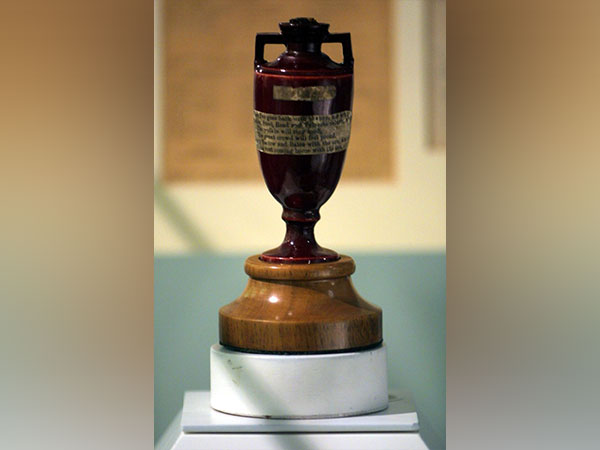

The cricketing world will be lit up again when England and Australia, two of the oldest rivals in the history of the sport lock horns in the prestigious Ashes series from June 16 onwards.
With Australia having won the previous Ashes series at home in the 2021-22 season by 4-0, England will be aiming to avenge the loss in their home territory. Australia will also be aiming to win their first Ashes series in England in over 20 years.
The hosts are also charged up by the ‘Bazball’ revolution brought by skipper Ben Stokes and head coach Brendon McCullum, which has seen England win 11 of their last 13 Tests and dominate their opponents with an attacking, aggressive and positive cricket that aims for victory, or a result at least.
The history of the series dates back to August 1882, when Australia toured England for a Test match. The match, held at The Oval was a low-scoring affair. In the first innings, Australia was skittled out for 63, with Jack Blackham (17) top scoring. Dick Barlow (5/19) and Ted Peate (4/31) set the tone for the rest of the match. England got a slender lead of 38 runs as they were bowled out for 101, with George Ulyett (26) being the top-scorer. Frederick Spofforth took 7/46 for Australia.
However, despite a fifty by Hugh Massie (55), Australia could make only 122 runs in their second innings, leaving England with 85 to chase. Ted Peate (4/40) bowled really well for England again.
WG Grace made a commanding 32 at the top but the rest of the batting side failed him. England was bundled out for 77, left just seven short of a win. This was Australia’s first-ever win on English soil.
This loss left fans stunned, who were not much used to seeing their heroes lose at home. The Sporting Times, a British newspaper back then expressed their dissapointment with the team’s performance with a mock obituary that suggested that the ‘English Cricket had died’.
“In Affectionate Remembrance OF ENGLISH CRICKET, WHICH DIED AT THE OVAL ON 29th AUGUST, 1882, Deeply lamented by a large circle of sorrowing friends and acquaintances. R. I. P. N.B.–The body will be cremated and the ashes taken to Australia,” read the obituary that intensified the rivalry between two cricketing powerhouses. For years, this rivalry would be a major source of bread and butter for cricket administrators and bodies as they carried on their mission of expanding the sport, which later created rivalries like England vs India, India vs Pakistan, Australia vs New Zealand etc.
A small terracotta urn, believed to be having ashes of a burnt cricket bail, became a symbol of cricket’s biggest rivalry and an object over which sport’s biggest icons would fight their hearts out on the field.
Before England travelled to Australia in 1882-83, skipper Ivo Bligh expressed his commitment to the cause of “regaining the ashes”. Bligh proved to be a man of his word, defeating Australia in Australia in the series 2-1.
Since then, a total of 72 Ashes series have been played since 1882, with England winning 32, Australia winning 34 and six ending in a draw.
Ever since 1882, England and Australia have played a total of 340 Test matches, out of which Australia has won 140, England has won 108 and 92 have ended in a draw.
In the 12 Ashes series played in the 21st century, Australia has won six, England has won five and one ended in a draw.
Australia’s Don Bradman is the top run-maker in the Ashes. In 37 matches, he has scored 5,028 runs at an average of 89.50. He has scored 19 centuries and 12 fifties in his Ashes career, with best score of 334.
Following him is England’s Jack Hobbs. In 41 matches, 3,636 runs at an average of 54.26. He has 12 centuries and 15 fifties, with the best score of 187.
At the third position is Australia’s Allan Border. In 42 matches, he has scored 3,222 runs at an average of 55.55. He has a total of seven centuries and 19 fifties, with a best score of 200*.
The top three run-scorers for Australia are – Bradman (5,028 runs), Border (3,222 runs) and Steve Waugh (3,173 runs at an average of 58.75, with 10 centuries and 14 fifties).
The top three-run scorers for England are – Jack Hobbs (3,636 runs), David Gower (3,037 runs in 38 matches at an average of 46.01 with nine centuries and 11 fifties) and Wally Hammond (2,853 runs at an average of 38.07 with nine centuries and seven centuries).
Coming to the bowlers, the highest wicket-taker in The Ashes is late spin great Shane Warne, who has 195 wickets in 36 matches at an average of 23.25, with best figures of 8/71.
In the second spot is Australia’s Glenn McGrath. He has 157 wickets in 30 matches, with an average of 20.92 and best figures of 8/38.
The third is Australia’s Hugh Trumble, who has 141 scalps in 31 matches, with an average of 20.88 and best figures of 8/65.
These are also the top-three wicket-takers for Australia in the Ashes.
For England, they are, Stuart Broad (131 wickets in 35 balls, with best figures of 8/15), Ian Botham (128 wickets in 32 matches with best figures of 6/95) and Bob Willis (123 wickets in 31 matches with best figures of 8/43).